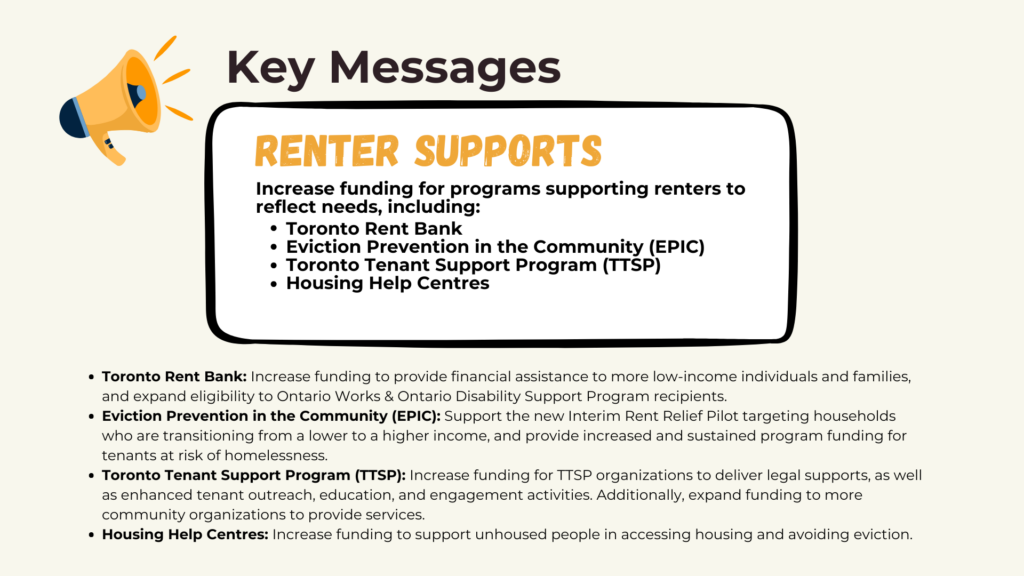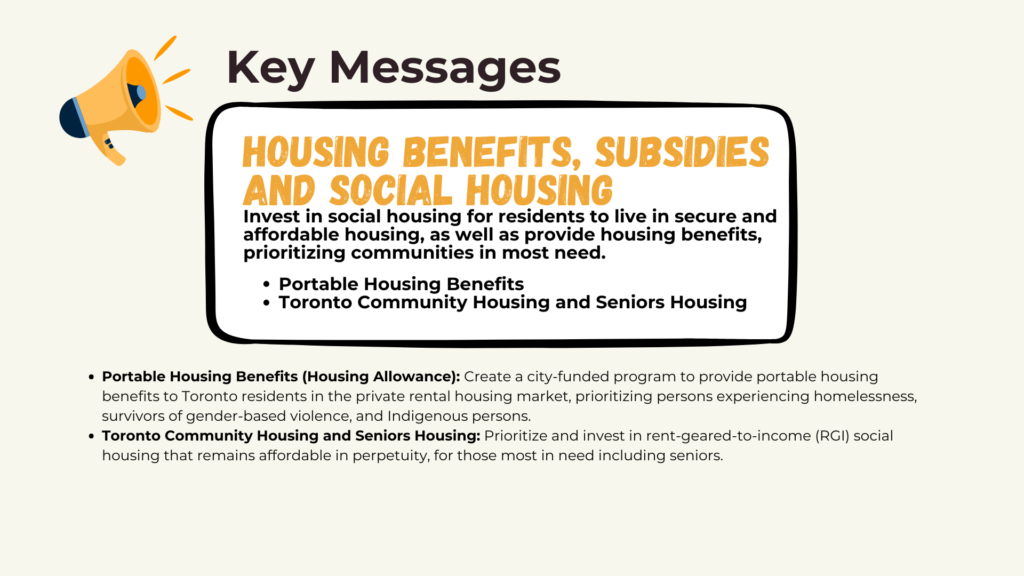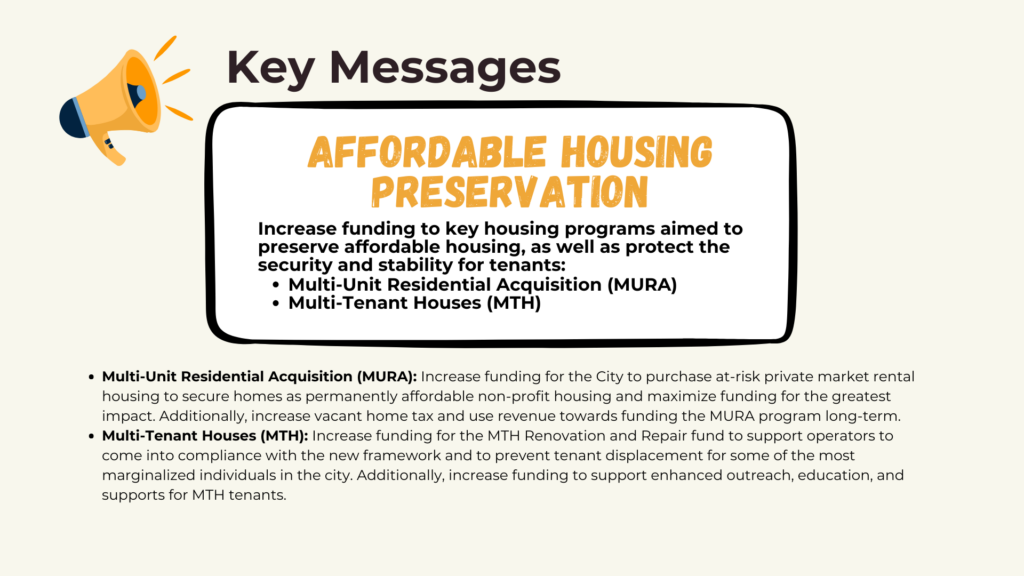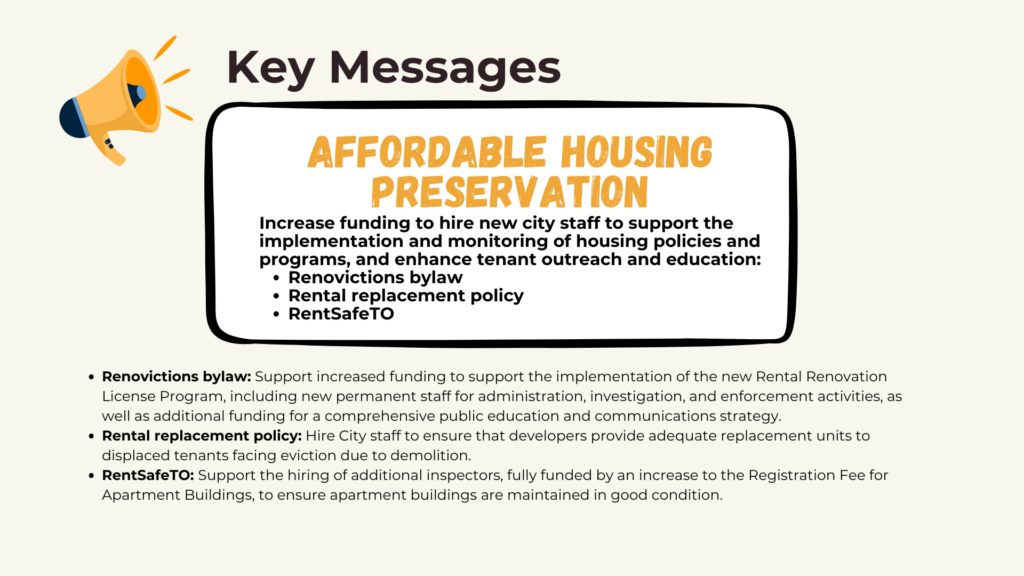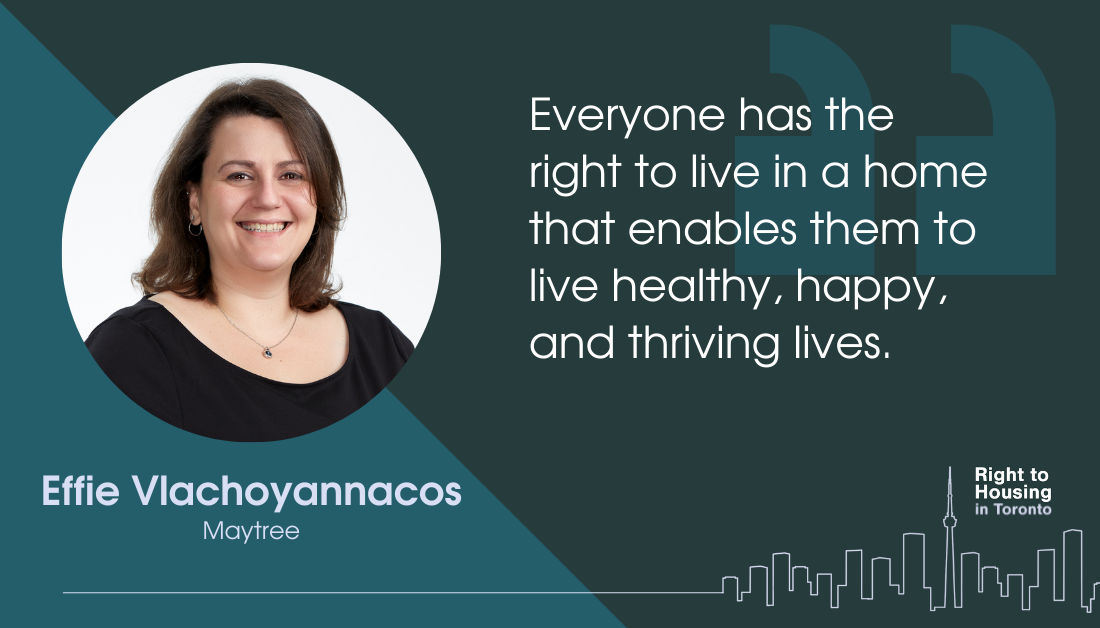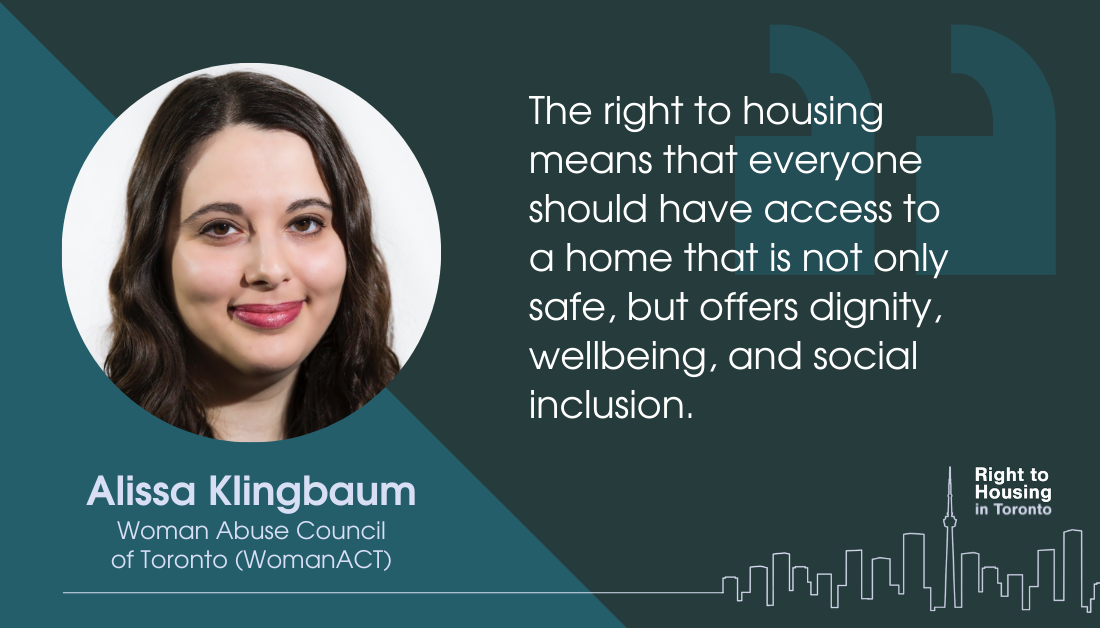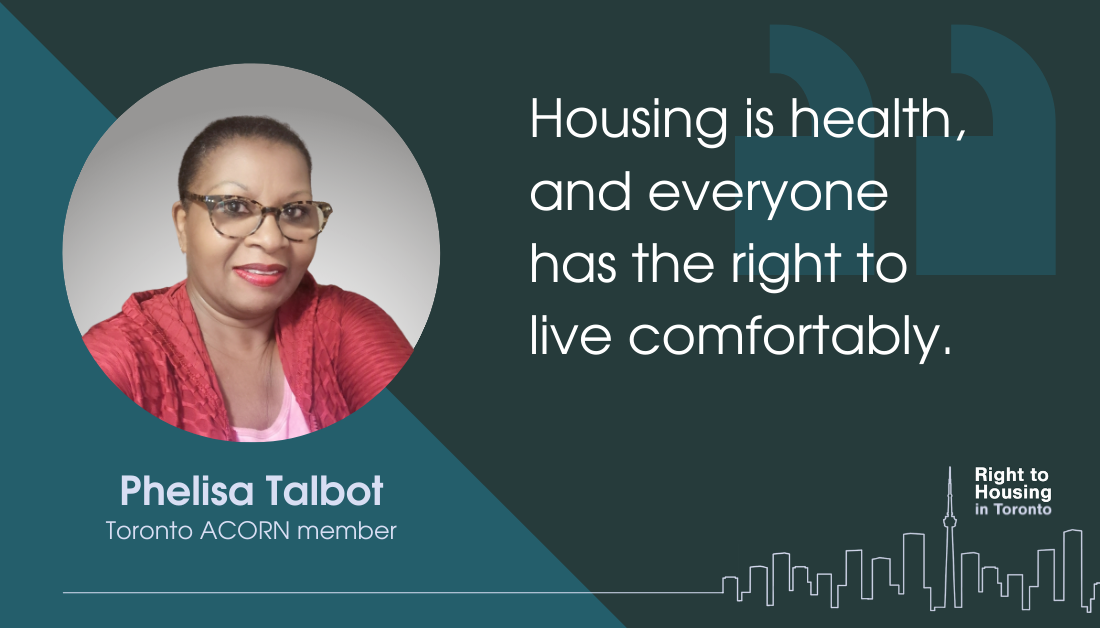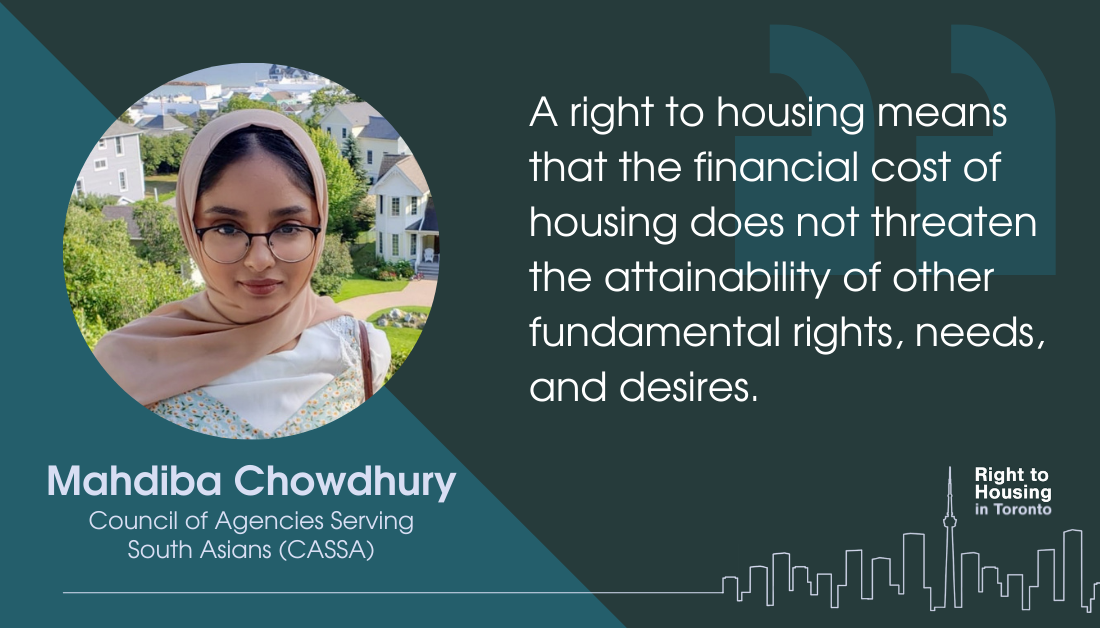The City of Toronto is in the process of developing a new renovictions bylaw aimed at protecting renters from illegitimate evictions and preserving the dwindling stock of affordable housing. To gather public input, the City held a series of consultations from August 13 to September 30, 2024. These included in-person and virtual drop-in sessions, an online survey, and various focus groups. Below are our key recommendations for the proposed bylaw.
What can the City do to make the rules clearer and easier for landlords or property owners who want to renovate their apartments and follow the rules?
The City should take measures to ensure that landlords are well informed and have access to education and training opportunities, including by collaborating with community agencies. This should include a clear understanding of tenant rights and landlord responsibilities related to habitability standards to ensure that units are maintained in a state of good repair, and that renovations requiring vacant possession are rarely required. The City and landlords alike should work to ensure that tenant displacement is avoided at all costs and tenants’ security of tenure is protected through the Renovictions Bylaw.
Ideally, the renovation licensing system should be integrated with the City’s RentSafeTO program and new multi-tenant housing licensing framework to form a more robust landlord licensing system that provides clear, accessible information and holds landlords accountable to upholding habitability and safety standards in all rental buildings. This would provide a more streamlined, accessible, and accountable process with clear direction for landlords. This system could also include stopgap measures to require landlords to explore all possible avenues to complete repairs and renovations without displacing tenants, which could include access to guidance, tools, and/or other supports.
The Renovictions Bylaw should also ensure that there is a clear, accessible process for landlords to apply for a renovation license, without any loopholes and minimal exemptions. This could include tying the building permit application process to the licensing system to ensure landlords do not bypass the licensing system once they obtain their permits. This integrated licensing system would also provide opportunities for regular, ongoing checks and balances on renovation projects and tenant displacement. The City could also advocate to the provincial government to coordinate this process with the issuance of N13 notices by the Landlord and Tenant Board for a fulsome, integrated monitoring and accountability framework to ensure all parties are well-informed, renovations are being carried out in good faith, and tenants are adequately supported if vacant possession is required.
The Renovictions Bylaw should also make clear that the onus of proof for renovations requiring vacant possession is on landlords, not tenants. In addition to license requirements (e.g., application fee, N13 notice, building permit, qualified persons report), this should also include landlord requirements related to tenant notification and accommodation plans, both before, during, and after the renovations are completed. To support this process, the City (potentially in collaboration with tenant support organizations) could create tools and/or templates to support both landlords and tenants in meeting the requirements of the Renovictions Bylaw (e.g., British Columbia Tenant Notice: Exercising Right of First Refusal).
Licence applications should also explicitly require consent or confirmation from the tenant that they agree to the arrangements outlined in the tenant accommodation plans, including as it relates to temporary accommodation or compensation (which should reflect asking rents and moving costs), as well as conditions for the tenant to return to the unit if they exercise their first right of refusal (e.g., rental rates and increases, occupancy of the same unit, access to amenities, etc.). For tenants that do not exercise their right of first refusal, the Bylaw should require landlords to provide adequate compensation for the loss of affordable housing (similar to the rent gap assistance for temporary relocation, reflecting asking rents). It is critical that any landlord costs (e.g., compensation through tenant accommodation plans and fines for non-compliance) are greater than the cost of doing business to deter bad faith activities.
To ensure both landlords and tenants are well informed of their rights and responsibilities under the Renovictions Bylaw, the City should prioritize the hiring of additional staff, including for customer service, program support, and enforcement to ensure that: landlords applying for a renovation license have completed all the requirements; tenants have clear, accessible pathways to receive support and report complaints; and there is sufficient on-site enforcement to confirm that renovation activities are proceeding as outlined in the license and that tenants are adequately informed of progress updates.
What supports would you suggest that tenants need in order to exercise their rights to prevent a renoviction, and to understand their rights under a future Renovictions bylaw?
It is critical that tenants have access to clear information about their housing rights, including as it relates to a future Renovictions Bylaw (e.g., tenant notification requirements, accommodation and compensation plans, exercising right of first refusal, where to access information and support, etc.). To support an equity and rights-based approach, this should include publicly accessible information in multiple languages and formats, with information about tenant rights and where to seek further information and/or support, including from the City and community agencies. As such, the City should work closely with community agencies that have close tenant connections (e.g., legal clinics, settlement agencies, etc.) to conduct a robust education and awareness raising campaign about the Renovictions Bylaw through a variety of formats (e.g., online, phone calls, door knocking, etc.).
The City should also take a holistic, integrated approach to the implementation of the Renovictions Bylaw across various City departments to ensure that staff are well informed of the Bylaw requirements, as well as tenant rights and landlord responsibilities, to provide adequate service and support. As noted above, this will require resourcing for additional staff positions, including a secure and accessible pathway for tenants to seek information and report violations, as well as for follow up enforcement actions.
Similarly, the City should ensure that tenants have access to adequate legal information and support. It is encouraging that the City is continuing to support community agencies through the Toronto Tenant Support Program, with a dedicated focus on the Renovictions Bylaw, and it will be equally important to ensure tenants are well informed of where they can access legal information and support across the city. As noted above, this could also include access to guidance, tools, and templates related to exercising the right of first refusal, tenant notification requirements, and accommodation and compensation plans. To ensure accommodation plans are developed in good faith and with full tenant consent, the Renovictions Bylaw could also include a requirement for an independent tenant and/or legal verification process to oversee the development of the accommodation plans. Finally, the Renovictions Bylaw should provide flexibility around timelines (e.g., 120 day notice period) to ensure tenants have sufficient time to access legal information and support to make an informed decision.
What are the most important things for the City to consider as it is developing a Renovictions bylaw for Toronto?
To ensure the City is taking a rights-based approach to the Renovictions Bylaw, it should be focused on preventing tenant displacement, protecting tenants’ security of tenure, and preserving affordability across the city. In the context of the current rental housing crisis and provincial landscape (i.e., soaring rents, low vacancy rates, few affordable options, and vacancy decontrol), landlords are strongly incentivized to evict tenants paying below market rents in order to bring in tenants that can pay higher market rates. This pattern disproportionally impacts low-income, racialized, and other marginalized tenants, leading to increasing rates of housing precarity and homelessness.
As such, where vacant possession is proven to be necessary under the Renovictions Bylaw, tenants should be adequately supported and compensated in a way that reflects the current cost of renting (i.e., asking rents, rather than average market rents), as well as moving costs (both in and out). Tenant accommodations plans should reflect a rights-based approach, recognizing different tenant needs based on neighbourhood services/amenities (e.g., childcare, schools, healthcare, employment, etc.), family size/status, accessibility, and cultural adequacy.
As noted above, the Renovictions Bylaw should ensure that tenants are well informed throughout the entire process, including as it relates to their rights (e.g., right of first refusal, notification requirements, accommodation and compensation, etc.), progress updates on the license application and renovation process, where to seek legal information and support, and channels to report violations.
The City should also seek to integrate the Renovictions Bylaw with the new multi-tenant housing (MTH) licensing framework, recognizing that MTH tenants are some of the most marginalized communities in the city, and the most vulnerable to displacement. As noted above, the City should take a holistic landlord licensing approach, which should include sufficient resourcing for the MTH renovation program, in addition to temporary accommodations for displaced tenants.
To ensure the Renovictions Bylaw meets its stated goals of protecting tenants and preserving affordable, habitable homes, it should include robust and well-resourced monitoring, enforcement, and evaluation mechanisms, including a sufficient staff complement. This could also include licensing parameters to prevent mass evictions and the impacts of gentrification of lower income neighbourhoods, such as requiring licenses for individual units rather than whole buildings and/or limiting the number of licenses available per year and/or by neighbourhood.
Above and beyond renovictions, the City should also explore opportunities to address and prevent other types of formal and informal evictions that tenants are facing across the city, which could include implementing a comprehensive rental housing licensing program similar to what some municipalities in British Columbia have adopted (e.g., New Westminster, Ladysmith).

